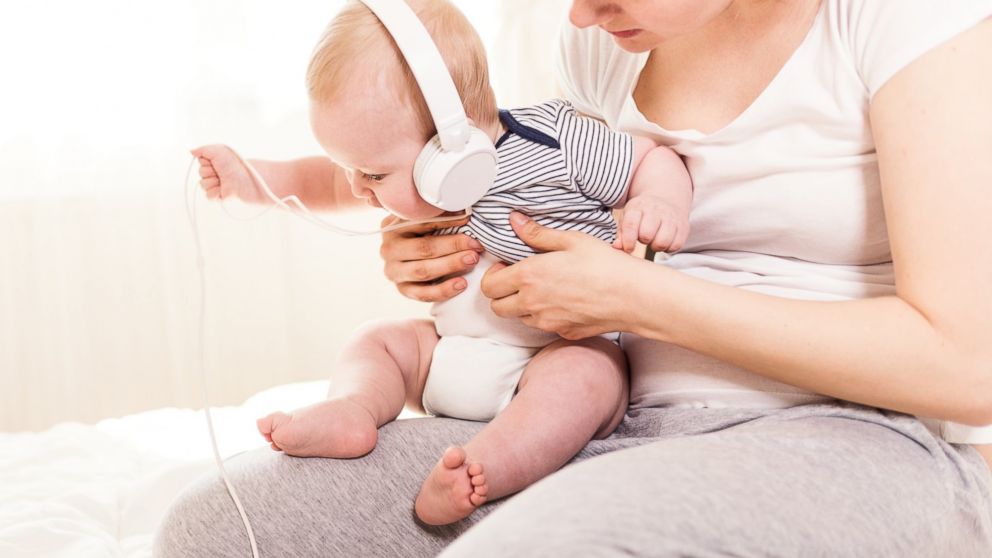Music May Help Infants Learn to Perceive Language Patterns
Infants, who listened to a waltz, had enhanced neural activity in tests.

— -- For growing babies, playing a waltz may help strengthen their ability to perceive speech and music, according to a new study published today.
Researchers investigated how listening to music in a social environment could impact infants' cognitive ability and neural processing. The small study published in the Proceedings of the National Academy of Sciences medical journal studied 39 infants at 9 months of age. Twenty of the infants were assigned to listen to a triple meter waltz while their parents or caregivers interacted with the babies and synchronized their movements with the beat.
The other 19 infants went to 12 sessions to play with non-musical toys and interact with their parent or caregiver. After 12 sessions, the researchers used a special device called a magnetoencephalography that can map brain activity through magnets to see if the infants' brains were better at recognizing patterns in the music and if they could identify if the music was disrupted. Foreign speech was also used to see if infants could tell the language pattern of what they normally heard day-to-day had changed.
They found that the 20 infants who had gone through all 12 music sessions already had increased activity in the areas of the brain associated with auditory function.
The music "intervention improves infants’ detection and prediction of auditory patterns, skills important to music and speech," the researchers concluded in their study.
While more study is needed, the researchers said listening to music may help babies be more perceptive about the world around them.
Dr. Joanne Loewy, director of the Louis Armstrong Center for Music and Medicine and associate professor at the Icahn school of Medicine, said she thought the study was interesting.
"There’s evidence that the fetus responds to sound," Loewy explained. The researchers "are looking at neurological evidence, which is exciting. Very young infants that neural processing of speech...is musical."
Loewy said going forward it would be important to build on this kind of research to ensure that that music really does affect a child's development and ability to recognize patterns.




